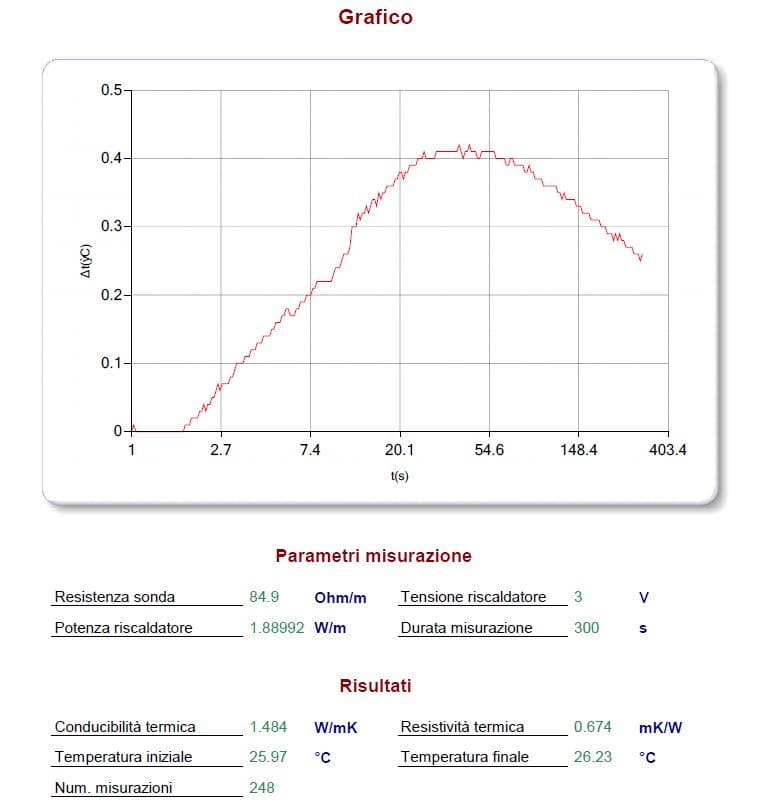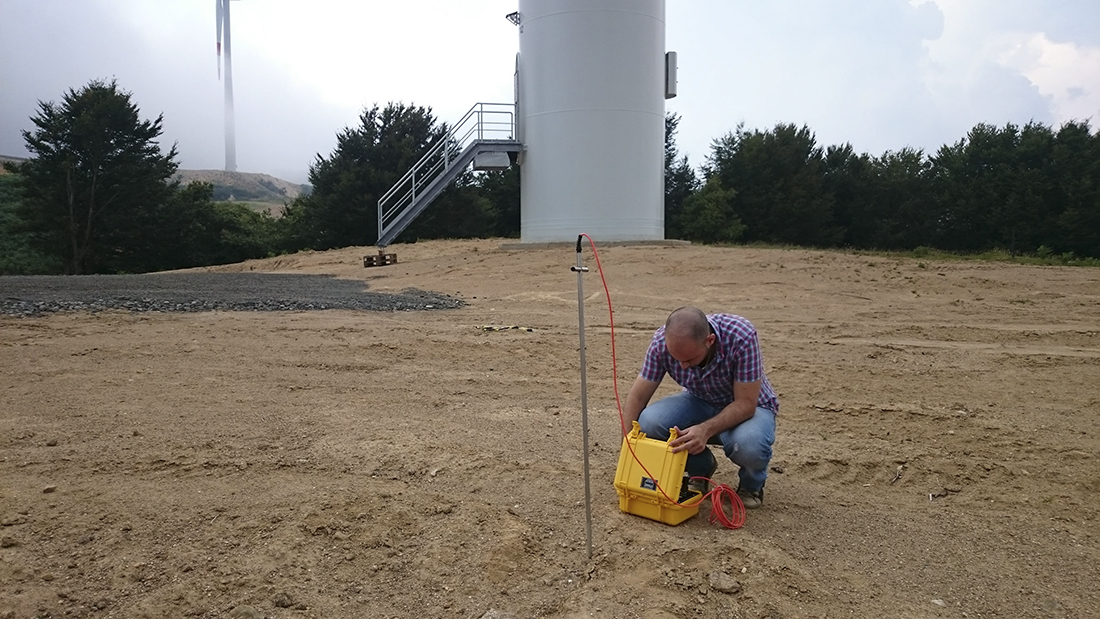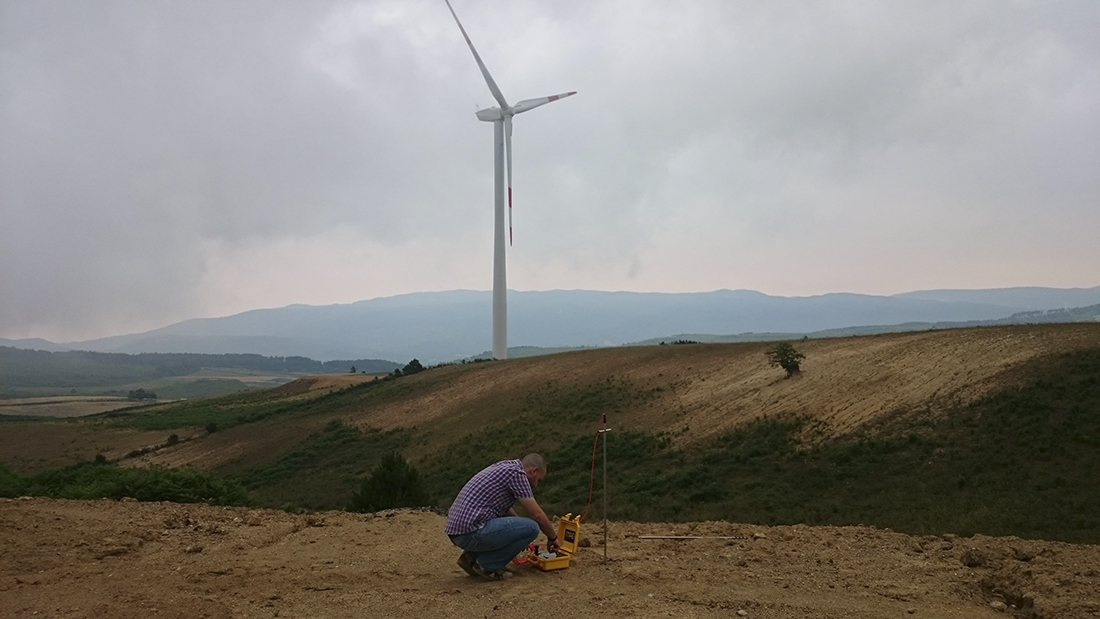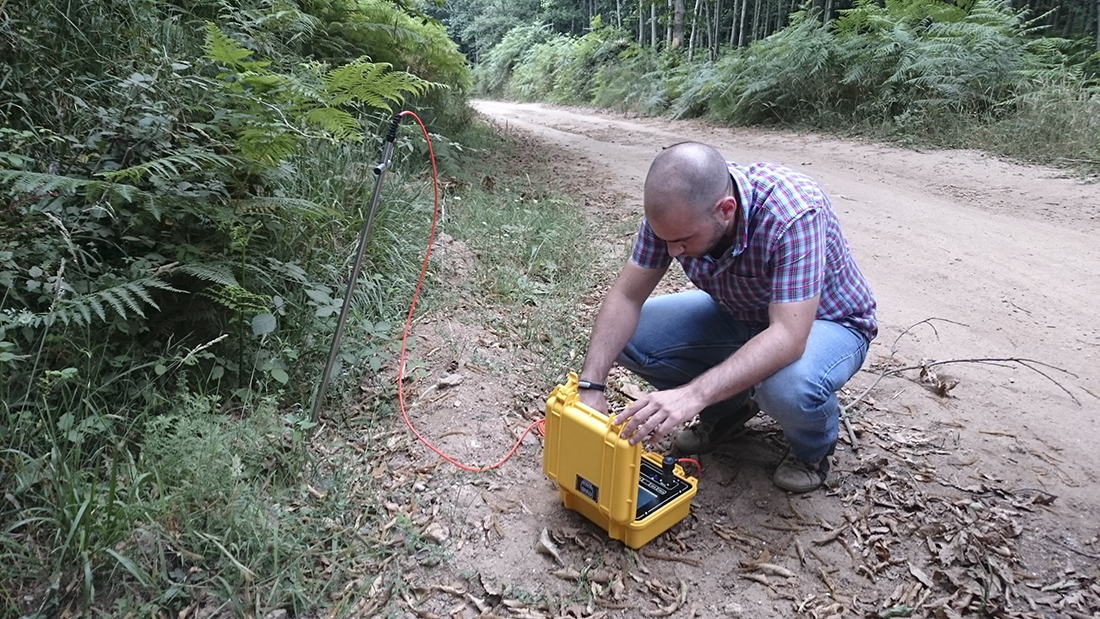Thermal Resistivity Measurements in Soil
Heat Conduction and Practical Applications
Thermal resistivity measurements in soil are essential for evaluating the heat conduction characteristics of the medium. The main parameter is known as thermal resistivity, or inversely, thermal conductivity.
These measurements are particularly important in the design of underground cable ducts and in assessing heat dissipation in geothermal piping systems. They help estimate the temperature rise inside conductors and in geothermal plant pipelines.
The measurement technique is based on a non-steady-state sensor, which uses a thermal probe (also called a thermal needle). This probe includes both a heating wire and a temperature sensor. Once inserted into the soil, the probe allows for the calculation of thermal resistivity based on the soil's response to a short heating cycle.

The principle relies on a specific property of a linear heat source: after a brief transient period, the temperature increase depends solely on the heating power and the thermal conductivity of the surrounding material. Once the power is known, conductivity can be calculated accurately.
Do you have a project?
Contact us for a consultation or for more information on our services
Contact us now

